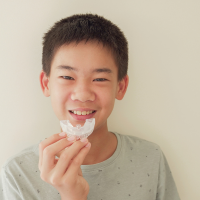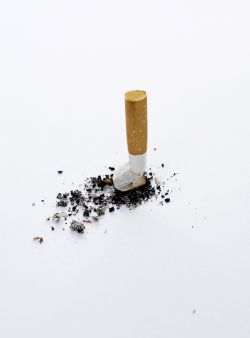Oral health for children from 7 - 18
Looking after teeth and gums
Children begin losing their baby teeth around the age of six. The first teeth to be lost are the lower and upper front teeth. The last baby tooth is usually lost around the age of 12 years.
It is important to take good care of your adult teeth which start to come through about age 6 at the back of the mouth, as you need these for life for eating and smiling.
Top Toothbrushing Tips
From 7 years of age, many children can brush their own teeth but will still require supervision, motivation, and possibly assistance from an adult.
Use a pea-sized amount of toothpaste containing 1350-1500ppm fluoride. Most ‘own brand’ supermarket toothpastes are suitable and more affordable.
Both powered and manual toothbrushes are effective as long as they have a small head.
Brush all the surfaces of the teeth and gumline in small circles for at least 2 minutes, twice a day - just before bedtime and at another time that fits in with your routine.
Spit out the toothpaste and do not rinse!
Diet
- Reduce the amount and frequency of having foods and drinks that contain sugar, only have sweet foods including dried fruit at mealtimes
- Squashes sweetened with sugar, fizzy drinks, soft drinks and juice drinks have no place in a child’s daily diet
- Limit the amount of fruit juice and/or smoothies your child drinks to a maximum of 150 mls (one portion) in total per day and drink it with meals to reduce the risk of tooth decay
- Always ask for sugar-free medicines
Food resources
Visiting the Dentist
Children should have a regular check-up at the dentist at least once a year, and adults at least every 2 years.
NHS dental treatment is free for children under 18 or under 19 and in qualifying full-time education
Some adults can also get free NHS dental treatment.
Going to the dentist regularly helps the child become familiar with the dental environment, and enables the dentist to pick up on any problems as early as possible.
The dentist can paint fluoride varnish on children’s teeth to protect them from tooth decay. All children aged 3 and over should have it applied at least twice a year. Parents / carers should ask their dentist about fluoride varnish.
Orthodontics
Orthodontics is straightening of the teeth. You usually have little brackets stuck to your teeth linked together by wires.
Orthodontic treatment is available free of charge on the NHS for under 18s who have a clinical need for it. Your dentist will let you know if your child qualifies for free treatment.
If you wear braces to straighten your teeth it is really important to keep your mouth clean, or tooth decay can quickly start around the brackets.
Mouthguards
Mouthguards cover the teeth and gums , to protect them from injury during contact sports.
Make sure your child has a mouth guard for contact sports like rugby, boxing, hockey.
The best ones are the ones made by a dentist as they take a mould of the mouth to ensure the mouth guard fits well.
Smoking, drinking alcohol and vaping
Smoking or chewing tobacco can: cause gum problems, stained teeth and bad breath
Both tobacco and alcohol use can increase the risk of getting mouth cancer.
Vapes contain chemicals which may harm your mouth. There is increasing evidence that vaping can make your mouth feel dry and irritate your gums, and may increase your risk of tooth decay and mouth cancer.


HPV vaccination
Remember to have your HPV vaccination as this will protect you against mouth cancer




